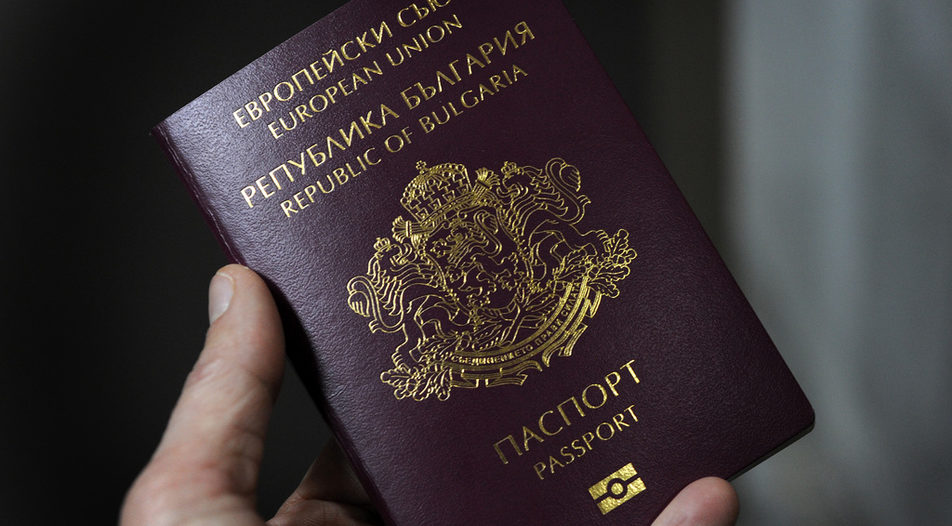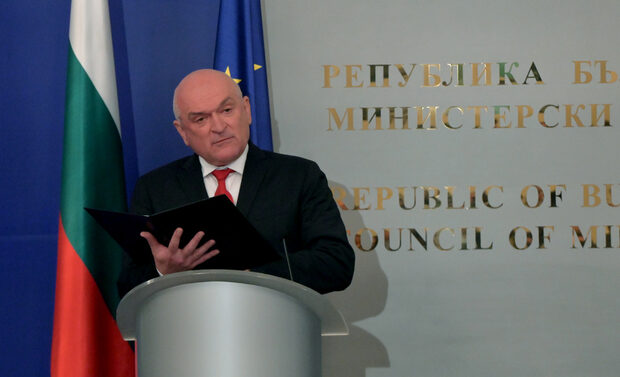Back in 2019 the European commission pointed to Bulgaria, Cyprus and Malta as the hidden backdoors to EU citizenship. The "golden passport" scheme, by which citizens of third countries could acquire EU passports in exchange for investments, was reviewed and action demanded of the Bulgarian government.
After twiddling their thumbs for more than a year, parliament this month overrode both the EC and the Bulgarian Ministry of Justice and not only kept the scheme but expanded it.
A committee, headed by the Turkish party MRF deputy Yordan Tsonev and tasked with studying the issue over the past 2 years, filed a different proposal from that of the Ministry of Justice and, in effect, kept all the current benefits with slight amendments. The deputies voted to raise the minimum investment requirement in a very limited number of cases - from 1 to 2 million levs (0.5 to 1 mln euro) in shares in Bulgarian enterprises. Also, additional requirements were written in for some of the existing options - for example, a requirement for job creation.
Under the guidance of Tsonev, who has been heading the campaign to keep the "golden passports" for the past year, the deputies also approved a last minute addition to allow those who already reside in Bulgaria with residence permits for investment to apply for citizenship. The same right was given to their family members. The only requirement was for their investments to be at least 5 years old. As Tsonev himself said "this concerns 60-70 people", without mentioning the source of this data.
The argument of his group is that strengthening the follow-up control will prevent abuse of the law.
Europe's problem with Bulgarian passports
Since 2013 when this option was first introduced, a total of 452 requests for citizenship have been filed with the Ministry of Justice. Of those, 246 were for a minimum of 500 thousand euro investment which requires a 5 year-old residence permit, and 206 were for a larger investment where the conditions are relaxed - 1 year permanent residence. Altogether, 93 people were granted citizenship yet there is no database about their origin, or about the fate of their investments.
The EU takes the matter seriously because the countries are essentially granting European citizenship, and their practices may pose a risk to the whole union - in terms of security breaches, money laundering, tax evasion, corruption, etc. In 2019, the then-commissioner for justice Vera Yurova said that she had received assurances Bulgaria intends to abolish the practice.
And that seemed to be the case when, in October 2019, the Ministry of Justice proposed to abolish the issuance of passports for short-term investments, leaving only the possibility of obtaining citizenship by investors with long-term projects certified as a class A, B, or priority investment. The ministry argued that "short-term investments" for citizenship were mostly a formality - quick transfers of funds in trust accounts, shares, and government securities. And, as soon as the "investor" receives a residence permit or passport, the investment is liquidated. No procedure for follow-up control has been established.
However, five months later, a group of MRF and GERB representatives - led by Yordan Tsonev, introduced another bill to parliament, proposing that the current regime should remain. Instead, what's needed is stricter control over the process, they argued. Brussels reacted almost immediately with a letter to Bulgarian authorities asking what happened and why representatives of the ruling party are against their own cabinet's proposal.
The European Parliament also took up the issue. "The granting of citizenship is not in itself regulated at the EU level. Each country decides for itself the rules for granting citizenship in its national legislation. At the same time, so long as the citizenship of any Member State automatically grants European citizenship, the "golden passports" are a serious European matter because they have an effect on security, the common market, and other Member States. It seems to me that it is time for this issue to be regulated on a European level," Bulgarian MEP Elena Yoncheva told Capital Weekly.
She argues that foreign investments can be attracted in many ways, but a country needs an effective tax policy, a well-functioning judiciary, and a modern and developed administration.
And now - back to Brussels
In the end, Bulgaria did not abolish the scheme. Rather, it got an upgrade, arguing that it wasn't sensible to deprive the country of investment opportunities.
In the end, one has to wonder how Brussels will react to the final results of the golden passport saga in Bulgaria. Paradoxically, the Ministry of Justice, which proposed the abolition of the scheme a year and a half ago, will now have to defend its continued existence, and even expansion, before the European Commission.
What did parliament approve?
Some of the bigger changes are in the Law for the Foreigners in Bulgaria, which states the rules for granting the right to permanent residence:- acquired shares and bonds for no less than 2 million levs in Bulgarian companies traded on a regulated market or a multilateral trading system;
- concessions in Bulgaria worth no less than 1 million levs;
- shares of not less than 1 million levs in collective investment schemes, provided that the net asset value of each scheme is not less than 5 million levs, and the investment strategy is focused mainly on shares or bonds of Bulgarian companies;
- shares worth at least 1 million levs in alternative investment funds in Bulgaria, provided that the assets of each fund are worth at least 3 million levs, and the investment strategy is focused on Bulgarian companies;
- increasing the capital of a Bulgarian enterprise by no less than 2 million levs for a priority investment project, certified under the Investment Promotion Act;
- no less than 500,000 levs, paid into the capital of a Bulgarian commercial company, in which the foreigner has a stake of at least 50% as a partner or shareholder with registered shares, etc.
Back in 2019 the European commission pointed to Bulgaria, Cyprus and Malta as the hidden backdoors to EU citizenship. The "golden passport" scheme, by which citizens of third countries could acquire EU passports in exchange for investments, was reviewed and action demanded of the Bulgarian government.
After twiddling their thumbs for more than a year, parliament this month overrode both the EC and the Bulgarian Ministry of Justice and not only kept the scheme but expanded it.












